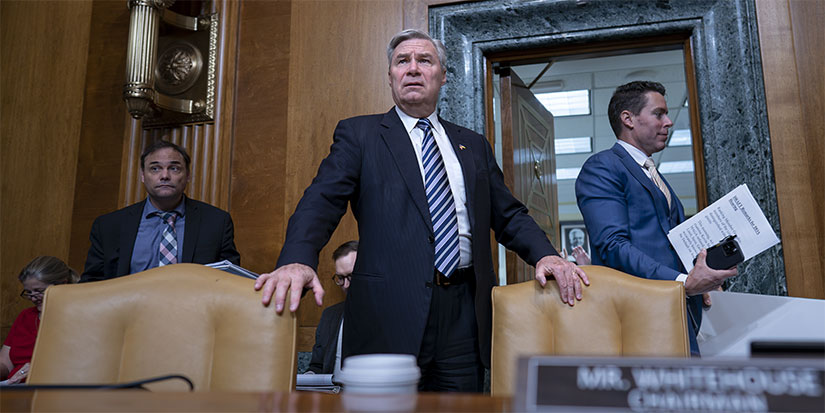
The Probability of Something Bad Happening
-
 Jared Dillian
Jared Dillian
- |
- May 11, 2023
- |
- Comments
We are presented with this decision in finance a lot. There is a small probability of something bad happening and a large probability that everything will be fine. What do you do to insure yourself against something bad happening? Because there is no such thing as a free lunch. Insurance costs money.
I am talking about the debt ceiling. I am very alert to the probability that the US will default on its debt. There is a small probability of that happening—but that probability is higher than at any point in history. And what I think is interesting about this is that people are sleepwalking through it, saying that it always works out in the end, when, in fact, it does not have to always work out in the end.
Let me frame this for you. The Fed hiked interest rates a lot, and people were dissatisfied with the yields they were getting in savings accounts and piled into T-bills, which were getting higher yields. Unfortunately, T-bills are the worst place to be if you think there is any likelihood that the government will default.
I can tell you that I personally have removed my money from money market funds, and I am holding it in cash until the debt ceiling is resolved. I am costing myself a little bit in terms of interest but gaining peace of mind. And if you know my shtick about personal finance, you know that I always do the thing that results in less stress. I don’t want to be up late at night on May 31, refreshing the browser on my laptop seeing if my T-bills are going to mature at par.
The statistical probability is higher than ever. US 1-year CDs are implying about a 4% probability of default. As I write, four-week bills are up about 13 basis points on the day. The market is taking this seriously, even if you are not.
Improbable Outcomes
Why am I worried about this? Because the two sides are so far apart and cannot be reconciled.
The thing is that you can’t go around hedging against every improbable bad outcome because it will eat significantly into your returns. If you bought hedges for every piece of economic data and every earnings report, you’d be poor.
I think this is the first debt ceiling negotiation where the two sides actively despise and mistrust each other. And according to the New York Times DealBook, they are very “far apart.”
|
Choosing what to invest in for retirement can be a pain. Unless you invest alongside Jared Dillian. He’s taken the confusion out of long-term investing with his easy-to follow Strategic Portfolio! Click this link NOW and discover your path to building the wealth you deserve. |
Having said that, they will probably work out something in the end. But I am not going to rest my financial well-being on “probably,” given that I can just click a button and immunize the risk. And even if the US doesn’t default, the two sides are going to play chicken all the way until the deadline, which is going to lead to a lot of volatility in markets.
The last time we went through something of this magnitude was during the S&P debt downgrade a little over 10 years ago. That got everyone’s attention. That was a tough one for a lot of people because bonds actually rallied.
And they may rally this time as well. But a four-week bill that matures immediately following the deadline is not going to fare as well.
Sentiment
I like to test sentiment on Twitter. Last week, I tweeted, “The US will default,” and cataloged the replies that came in. Most people said I was nuts. Many people accused me of fearmongering. Almost nobody agreed with me.
My experience with bad things happening is that they tend to happen when nobody is expecting them to happen. A lot of people view the debt ceiling as an opportunity for political grandstanding, sound and fury, signifying nothing… and that it will all work out in the end.
Bill Gross thinks that the fear around the debt ceiling is “ridiculous,” for what it’s worth.
Like what you're reading?
Get this free newsletter in your inbox every Thursday! Read our privacy policy here.
But gold would probably put in new highs. And cash outside the financial markets would be safe.
These days, everyone is worried about where to put their cash, given all the bank failures that are happening. That is understandable. It appears nothing is safe. And that has been one of my core beliefs: that nothing is safe—over the long term.
Look, we are even talking about T-bills not being safe. There will come a time when gold is not safe. Everyone thought tech stocks were safe—not safe.
Only the paranoid survive.

Jared Dillian
subscribers@mauldineconomics.com

 Jared Dillian
Jared Dillian